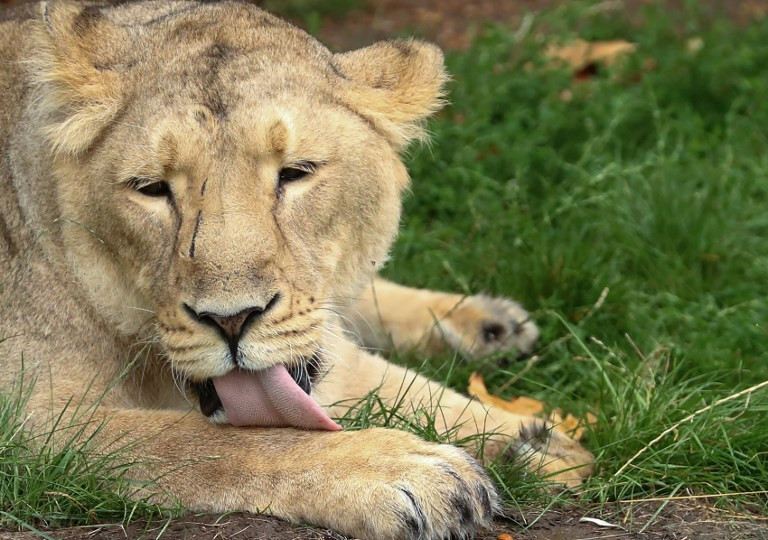Popular Reads
Top Results
Can't find what you're looking for?
View all search resultsPopular Reads
Top Results
Can't find what you're looking for?
View all search resultsPrague zoo hopes rare lion insemination sows seed for survival
Change text size
Gift Premium Articles
to Anyone
A
fter two suitors failed to get a rare Asiatic lioness pregnant, Prague zoo now hopes that artificial insemination will finally plant the seed for her species' survival.
"Ginni, our female Asiatic lion from Gujarat in India, underwent artificial insemination on Wednesday evening," the zoo said in a statement on Thursday.
With some 600 Asiatic lions living in Gujarat and another 143 in European facilities, zoo director Miroslav Bobek said he held "great hope" in Prague's Asiatic lions to preserve the dwindling species on a global scale.
The zoo has been attempting to breed its three Asiatic lions from India since they arrived in 2015, so far with no success.
Female Suchi proved to be sterile while Ginni repeatedly snubbed her nose at Jamvan, a male who zookeepers say was too passive.
Read also: Lion cub triplets make first public appearance at Frankfurt zoo
Sohan, another male borrowed from a zoo in the eastern Czech city of Ostrava, also failed to get Ginni pregnant but did manage to trigger ovulation.
In the end, zookeepers opted to use Jamvan's sperm to inseminate Ginni during Wednesday's procedure, which, if successful, should see cubs born in about four months.
The procedure was carried out by a team from the Berlin-based Leibniz Institute for Zoo and Wildlife Research and Prague zoo vets.
They pegged the probability of success at 60-70 percent.
Last autumn, authorities in Gujarat reported dozens of dead Asiatic lions, killed by the canine distemper virus and a parasitic infection caused by ticks.











